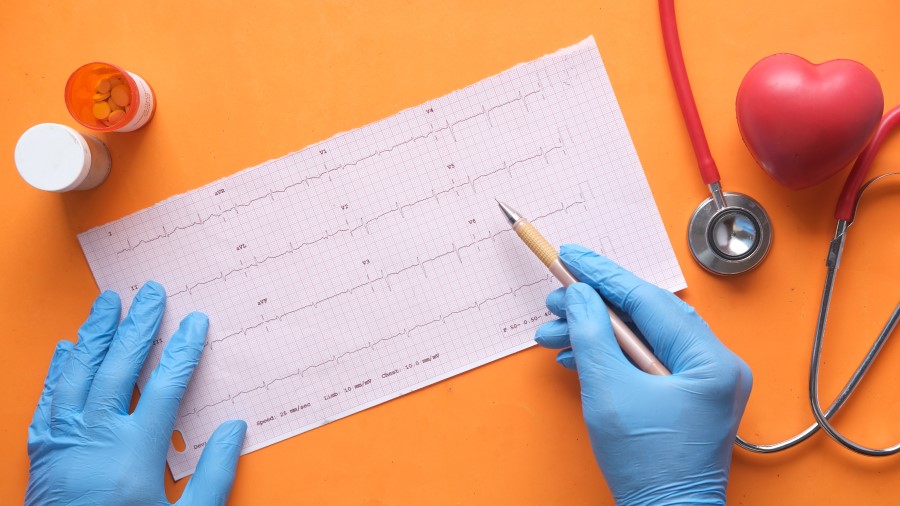Heart attack portrayals in TV and movies can be bad for your health
Aug 31, 2022, 6:38 AM

(Photo by Towfiqu barbhuiya on Unsplash )
A couple of months ago, Olympia’s Roel Hammerschlag woke up feeling uncomfortable.
“I felt kind of cramped throughout my chest, back, and both arms,” said Hammerschlag. “I assumed it was stress related.”
He went to work, ran errands, and, finally, after 12 hours of thinking he might be having a panic attack, he went to urgent care. Certain he wasn’t having a heart attack.
“They put me straight onto an EKG,” Hammerschlag said. “They said, ‘We think you’re having a heart attack.’ I feel like I was, what you might call, in denial all the way up to being in the procedure where they fix it.”
Hammerschlag had a heart attack, but he didn’t recognize the symptoms. He thought only his right arm would feel tight and that he’d have chest pain.
“I made some remark about how I had walked around with that heart attack all day, for 10 or 12 hours,” said Hammerschlag. “One of the nurses said, ‘Well, most heart attacks are like that. A guy grabbing his chest and falling to the ground is something you see on TV. It does happen in real life, but it’s pretty rare.’ Most heart attacks look a lot more like mine and, in fact, she said a few patients walked around with a heart attack for a week! All men, of course, because they’re the ones with too much pride to come in.”
The problem is heart attacks don’t always present in a way we’re familiar with.
“Sometimes people don’t feel chest pain at all, or pressure. The elderly or diabetics, they can have no symptoms at all, except maybe fatigue,” said Harborview Medical Center ER doctor, Dr Elizabeth Dorn. “Their jaw could hurt. There was a man who kept feeling like he had dental pain every time he went for a run. He went to a dentist who thought he looked pretty sweaty and pale and sent him to the ER. When somebody comes in, I always ask the person they’re with, ‘What did they look like when they felt the worst?’ And if they were pale and sweaty, that’s very concerning to me because that says there was a moment where they weren’t flowing blood.”
Dr. Dorn says the chest clutching and falling to the ground we see on TV and in movies is cardiac arrest, full blockage to the heart.
“Most people don’t live from a cardiac arrest,” said Dr. Dorn. “Even in Seattle, which is the best city in the country to have a heart attack. If you’re going to drop dead from a heart attack, do it in Seattle because we have about a 30% survival rate, in comparison to the rest of the country being 5% or less. We have an incredible Medic One system here, we have AEDs all over the place, we have the best-trained citizenship of any city. I mean, I’m probably bragging, there’s a place like Stockholm that’s like, “We are better!’ Actually, Sweden is also a great place to have a heart attack, in case you’re looking for a vacation!”
She says cardiac arrest is different than a heart attack, something most people survive.
I asked Dr. Ruchi Kapoor, University of Washington cardiologist and president of the Puget Sound chapter of the American Heart Association, if TV and movies send the wrong message about heart attacks.
“One hundred percent, yes!” said Dr. Kapoor. “For women, only 50% of them actually experience chest pain. For most women, it’s some other symptom. Unfortunately, because of that reason, women tend to be under-treated, under-diagnosed with heart disease, even though it’s still the number one killer in the United States, more so than cancer.”
“Another kind of mythology of the media is that heart attacks are caused by severe stress,” said Hammerschlag. “Like, someone learns something horrible and they have a heart attack. The vast majority of these heart attacks, and certainly the one I had, are mostly caused by bad eating. It’s a very slow accumulation of plaque inside the coronary arteries. I chose not to pay attention to nutrition and that was kind of deliberate. I’m not really a big fan of cooking and I like to eat whatever I like to eat. My body has always seemed to take good care of itself.”
Hammerschlag is a 55-year-old dancer and gyrotonic instructor; he thought all of that movement kept him healthy. Dr. Dorn describes the average American diet, full of processed foods, as “a heart attack diet” and says high protein diets like keto aren’t heart healthy.
“All of that saturated fat is highly arrhythmogenic, meaning: makes plaques, meaning: makes heart attacks,” Dr. Dorn said. “You could be on a diet that might make you skinny but it could also put you at risk for heart attack. Weight loss and heart-healthy eating are not the same, though if you follow a heart-healthy diet, you’re more likely to have weight loss in a heart-healthy way.”
She says to listen to your body; if you feel off go to the ER.
“It is never the wrong thing to come to an ER if you have anything that concerns you,” Dr. Dorn said. “Don’t be ashamed.”
Dr. Kapoor recommends getting regular checkups and screenings and knowing your blood pressure and cholesterol numbers, so you can do your best to proactively prevent a heart attack.
Listen to Rachel Belle’s James Beard Award nominated podcast, “Your Last Meal.” Follow @yourlastmealpodcast on Instagram!













